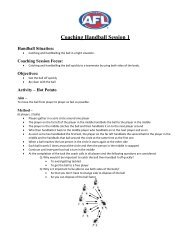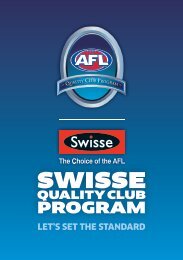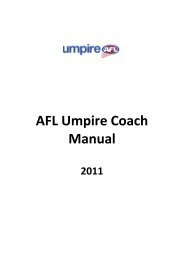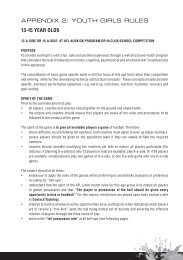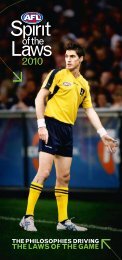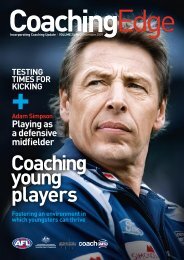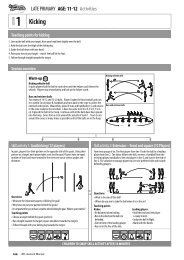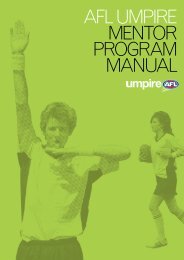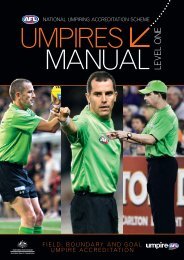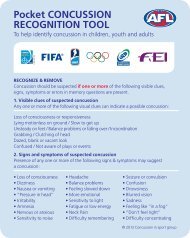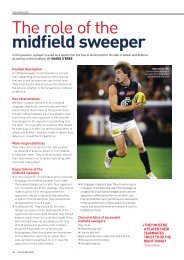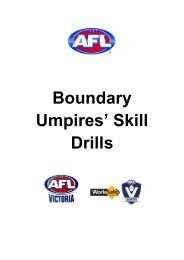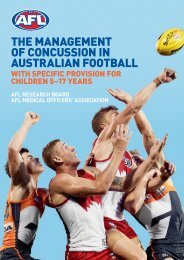2012 Youth Coaching Manual - AFL Community
2012 Youth Coaching Manual - AFL Community
2012 Youth Coaching Manual - AFL Community
You also want an ePaper? Increase the reach of your titles
YUMPU automatically turns print PDFs into web optimized ePapers that Google loves.
Chapter 11<br />
Nutrition<br />
The value of good nutrition is well-recognised and appreciated by footballers at all levels of the game. Young footballers have<br />
specific nutrition needs for optimal health, growth, and exercise demands. Due to the rapid growth during adolescence, more<br />
kilojoules, protein and vitamins and minerals are required. Every adolescent is different. There is not one set of golden rules.<br />
However, there are some basic strategies that adolescents can use to achieve the right nutrition balance. A well-balanced diet<br />
will ensure adequate nutrition for growth, training and maintenance of a healthy body composition.<br />
The coach needs to:<br />
• Know how to access good advice about sports nutrition.<br />
• Organise information sessions for parents using credible nutrition resources.<br />
• Ensure that appropriate food and fluids are available during road-trips and camps.<br />
• Encourage healthy body composition but avoid overstating the need for a particular body shape, percentage body fat or fad<br />
diet to achieve potential.<br />
nutrient Requirements during adolescence<br />
An increased requirement for nutrients during adolescence is necessary to cope with the major growth changes taking place<br />
from the ages of about 11 to 19. Meeting needs can be a challenge at a time when nutrition is not always a priority!<br />
• Adolescents are inclined to experiment with fast foods and food fads, which can result in an unbalanced diet.<br />
• Adolescents express their newly found independence by giving up some of the family food habits and developing their own<br />
style.<br />
• Remember, it is the total diet that counts. Adolescents will eat some of the high-fat snacks and takeaways, but encourage<br />
them to keep these foods for occasional extras and to balance their eating using the Australian Guide to Healthy Eating<br />
as a guide.<br />
• Emphasise good food as part of a healthy lifestyle.<br />
• Education and information about the best choices for meals and snacks are important at this time.<br />
• Since appetite depends on growth and activity levels, it is natural for it to vary from day to day. Adolescents need to<br />
be flexible in the quantity of foods consumed at different times. Eating to appetite is a good indicator, however active<br />
adolescents may need to eat more than their appetite dictates.<br />
Players should be aware of the impact of nutrition and the basic guidelines to follow for optimal health, performance and<br />
recovery from training and competition.<br />
<strong>AFL</strong> <strong>Youth</strong> <strong>Coaching</strong> <strong>Manual</strong><br />
119



